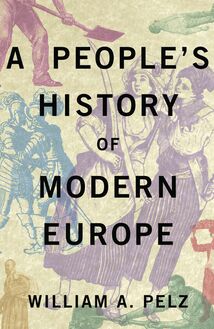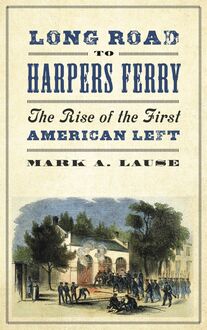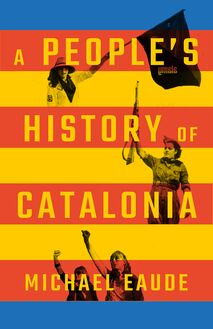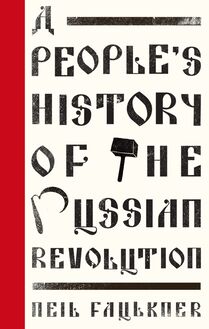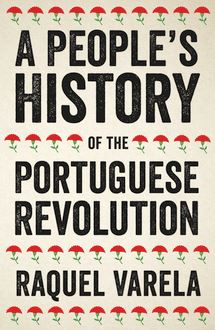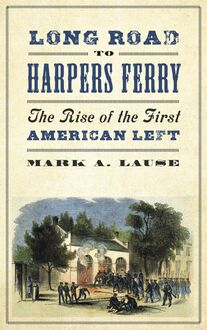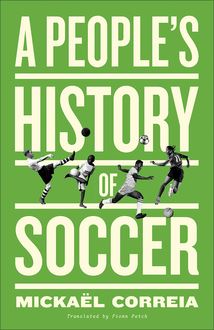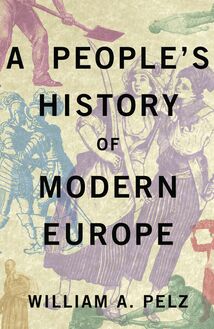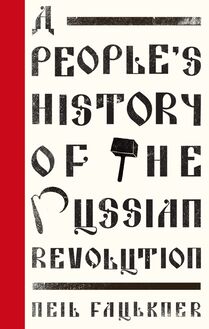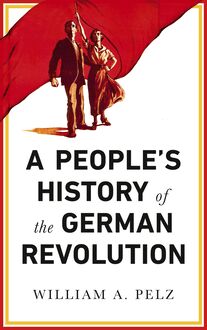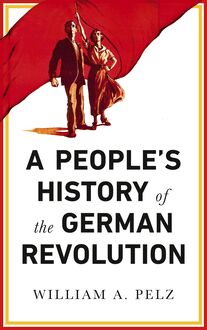-
 Univers
Univers
-
 Ebooks
Ebooks
-
 Livres audio
Livres audio
-
 Presse
Presse
-
 Podcasts
Podcasts
-
 BD
BD
-
 Documents
Documents
-
- Cours
- Révisions
- Ressources pédagogiques
- Sciences de l’éducation
- Manuels scolaires
- Langues
- Travaux de classe
- Annales de BEP
- Etudes supérieures
- Maternelle et primaire
- Fiches de lecture
- Orientation scolaire
- Méthodologie
- Corrigés de devoir
- Annales d’examens et concours
- Annales du bac
- Annales du brevet
- Rapports de stage
La lecture à portée de main
Vous pourrez modifier la taille du texte de cet ouvrage
Découvre YouScribe en t'inscrivant gratuitement
Je m'inscrisDécouvre YouScribe en t'inscrivant gratuitement
Je m'inscrisEn savoir plus
Vous pourrez modifier la taille du texte de cet ouvrage
En savoir plus

Description
Europe provided the perfect conditions for a great number of political revolutions from below. The German peasant wars of Thomas Müntzer, the bourgeois revolutions of the eighteenth century, the rise of the industrial worker in England, the turbulent journey of the Russian Soviets, the role of the European working class throughout the Cold War, student protests in 1968 and through to the present day, when we continue to fight to forge an alternative to the barbaric economic system.
By focusing on the role of women, trade unions and students, this history sweeps away the tired platitudes of the privileged upon which our current understanding is based, providing an opportunity to see our history differently.
Acknowledgements
Introduction
1. 'The King’s in His Castle... All’s Right with the World': The Collapse of the Middle Ages
2. 'The Other Reformation': Martin Luther, Religious Dogma and the Common People
3. 'The World Turned Upside Down': The Crisis of the Seventeenth Century and the English Revolution, 1640-49
4. The Rise of the Third Estate: The French People Revolt
5. Becoming an Appendage to the Machine: The Revolution in Production
6. From the Revolutions of 1848-49 to the First People's Democracy: The Paris Commune
7. The Rise of the Working Classes: Trade Unions and Socialism, 1871-1914
8. Protest and Mutiny Confront Mass Slaughter: Europeans in World War I
9. War Leads to Revolution: Russia (1917), Central Europe (1918-19)
10. Economic Collapse and the Rise of Fascism, 1920-33
11. Against Fascist Terror: War and Genocide, 1933-45
12. A New Europe? 1945-48
13. Europeans in the Cold War: Between Moscow and Washington
14. From the Berlin Wall to the Prague Spring: A New Generation of Europeans
15. Fighting for Peace in an Atomic Age, 1969-89
16. Europe Falls into the Twenty-First Century
Notes
Index
Sujets
Informations
| Publié par | Pluto Press |
| Date de parution | 20 mai 2016 |
| Nombre de lectures | 0 |
| EAN13 | 9781783717682 |
| Langue | English |
Informations légales : prix de location à la page 0,0005€. Cette information est donnée uniquement à titre indicatif conformément à la législation en vigueur.
Extrait
A People’s History of Modern Europe
“A fascinating journey across centuries towards the world as we experience it today. … It is the voice of the ordinary people, and women in particular, their ideas and actions, protests and sufferings that have gone into the making of this alternative narrative.”
——Sobhanlal Datta Gupta, former Surendra Nath Banerjee Professor of Political Science, University of Calcutta
“A history of Europe that doesn’t remove the Europeans. Here there are not only kings, presidents and institutions but the pulse of the people and social organizations that shaped Europe. A must-read.”
——Raquel Varela, Universidade Nova de Lisboa
“Lively and engaging. William A Pelz takes the reader through a thousand years of European history from below. This is the not the story of lords, kings and rulers. It is the story of the ordinary people of Europe and their struggles against those lords, kings and rulers, from the Middle Ages to the present day. A fine introduction.”
——Francis King, editor, Socialist History
“This book is an exception to the rule that the winner takes all. It highlights the importance of the commoners which often is only shown in the dark corners of mainstream history books. From Hussites, Levellers and sans-culottes to the women who defended the Paris Commune and the workers who occupied the shipyards during the Carnation revolution in Portugal. The author gives them their deserved place in history just like Howard Zinn did for the American people.”
——Sjaak van der Velden, International Institute of Social History, Amsterdam
“The author puts his focus on the lives and historical impact of those excluded from power and wealth: peasants and serfs of the Middle Ages, workers during the Industrial Revolution, women in a patriarchic order that transcended different eras. This focus not only makes history relevant for contemporary debates on social justice, it also urges the reader to develop a critical approach.”
——Ralf Hoffrogge, Ruhr-Universität Bochum
“An exciting story of generations of people struggling for better living conditions, and for social and political rights. … This story has to be considered now, when the very notions of enlightenment, progress and social change are being questioned.”
——Boris Kagarlitsky, director of Institute for globalization studies and social movements, Moscow, and author of From Empires to Imperialism
“A splendid antidote to the many European histories dominated by kings, businessmen and generals. It should be on the shelves of both academics and activists … A lively and informative intellectual tour-de-force.”
——Marcel van der Linden, International Institute of Social History, Amsterdam
A People’s History of Modern Europe
William A. Pelz
First published 2016 by Pluto Press
345 Archway Road, London N6 5AA
www.plutobooks.com
Copyright © William A. Pelz 2016
The right of William A. Pelz to be identified as the author of this work has been asserted by him in accordance with the Copyright, Designs and Patents Act 1988.
British Library Cataloguing in Publication Data
A catalogue record for this book is available from the British Library
ISBN 978 0 7453 3246 8 Hardback
ISBN 978 0 7453 3245 1 Paperback
ISBN 978 1 7837 1767 5 PDF eBook
ISBN 978 1 7837 1769 9 Kindle eBook
ISBN 978 1 7837 1768 2 EPUB eBook
This book is printed on paper suitable for recycling and made from fully managed and sustained forest sources. Logging, pulping and manufacturing processes are expected to conform to the environmental standards of the country of origin.
Typeset by Stanford DTP Services, Northampton, England
Simultaneously printed in the European Union and United States of America
Contents
Acknowledgements
Introduction
CHAPTER ONE
“The King’s in His Castle … All’s Right with the World”: The Collapse of the Middle Ages
CHAPTER TWO
“The Other Reformation”: Martin Luther, Religious Dogma and the Common People
CHAPTER THREE
“The World Turned Upside Down”: The Crisis of the Seventeenth Century and the English Revolution, 1640–49
CHAPTER FOUR
The Rise of the Third Estate: The French People Revolt
CHAPTER FIVE
Becoming an Appendage to the Machine: The Revolution in Production
CHAPTER SIX
From the Revolutions of 1848–49 to the First People’s Democracy: The Paris Commune
CHAPTER SEVEN
The Rise of the Working Classes: Trade Unions and Socialism, 1871–1914
CHAPTER EIGHT
Protest and Mutiny Confront Mass Slaughter: Europeans in World War I
CHAPTER NINE
War Leads to Revolution: Russia (1917), Central Europe (1918–19)
CHAPTER TEN
Economic Collapse and the Rise of Fascism, 1920–33
CHAPTER ELEVEN
Against Fascist Terror: War and Genocide, 1933–45
CHAPTER TWELVE
A New Europe? 1945–48
CHAPTER THIRTEEN
Europeans in the Cold War: Between Moscow and Washington
CHAPTER FOURTEEN
From the Berlin Wall to the Prague Spring: A New Generation of Europeans
CHAPTER FIFTEEN
Fighting for Peace in an Atomic Age, 1969–89
CHAPTER SIXTEEN
Europe Falls into the Twenty-First Century
Notes
Index
Acknowledgements
First, I must praise David Castle, my editor at Pluto Press, who treated my manuscript with a level of skill, care, understanding and sophistication so sadly lacking in most modern editors. The book is only as good as it is because of David’s expertise and dedication. As authors often note, there are countless people who contribute to any book whether directly or indirectly. As is so often the case there are more than can be credited. So, I’d like to thank everyone whom I don’t name for their contribution to the writing of this book . Katie Stollenwerk, Secretary of the Institute of Working Class History (Chicago), was invaluable in correcting my often odd English (the author grew up in the working-class Englewood district of Chicago). If this book has sentences that contain verbs, much of the credit goes to Katie.
Embarrassing factual mistakes were discovered by Ian Birchall (London) and Boris Kagarlitsky (Moscow) when reviewing a draft of the book. These have been corrected but as they say “to err is human, to forgive divine.” I have gained information, have had insights sharpened, and new approaches suggested by countless talks with generous and committed colleagues. Among these are Ottokar Luban (Berlin), Francis King (East Anglia), Eric Schuster (Chicago), Ralf Hoffrogge (Berlin), Raquel Varela (Lisbon), Marcel van der Linden (Amsterdam), Sobhanlal Datta Gupta (India), Sjaak van der Velden (Amsterdam), Mark Lause (Cincinnati), Bruno Drweski (Paris), Axel Fair-Schulz (Potsdam), Steven McGiffen (Paris), Roger Johansson (Malmo), Kasper Braskén (Finland), Norman LaPorte (Wales), John Barzman (LeHavre) and Mario Kessler (New York/Berlin).
I owe the greatest debt to Adrienne L. Butler, my wife, who endured seemingly endless months of piles of papers piled upon stacks of books. There was a mess everywhere in the house. Yet, never once did she resort to physical violence against her obsessed husband. Last, and never least, is the cat, Sputnik, who took time out of his busy schedule of naps to hop onto my papers and rearrange them in a manner more to his liking. Sometimes, he was right. Needless to say, any mistakes of fact, interpretation or imagination are solely Sputnik’s fault, not mine.
William A. Pelz
Introduction
Imagine kings ruling without subjects, generals waging war without soldiers, or businesspeople making profits without workers. It’s hard to take seriously any such silly situations, right? Yet, history is often written as if rulers, war leaders and moneymakers are the only people in society or, at least, the only people who matter. The current author dissents from this idea. It will be argued in this book that the common people matter and that their history matters. That is to say, the commoners’ role in history is an integral, yet lacking, part of the story of modern Europe, that has too often been passed over. History allows us to see how societies develop and change while it points to various possible futures. It is the story of people struggling, often in dark times.
This book provides an alternative reading of European history starting with the Middle Ages. Instead of focusing on only the traditional themes and concerns that emphasize the rulers, this title highlights the dissidents, rebels and radicals who helped make Europe what it is. Most books focus on a rather conventional narrative with, more recently, a section on women or peasants included to add diversity. The average reader is in no doubt however as to who and what is important. That is, the rich and powerful are not only the most important subjects of serious study—they are typically the only worthwhile subjects of study.
A People’s History of Modern Europe offers a concise, readable alternative to mainstream textbooks and surveys while suggesting a different understanding of the development and trajectory of European history. That is, history is presented as moving through conflicts between contending groups rather than as the result of brilliant insights by upper-class rulers and thinkers. To be sure, there are a number of specialized volumes that attempt this but typically they have a rather limited focus. The main problem is that these books often remain accessible solely to the scholar or the academic, as opposed to the general reader or student.
Starting with the decay and collapse of West European feudalism, this book traces in broad outline the contributions made by common people, rebels, dissenters and non-conformists. This book will give greater prominence to those individuals and events that are glossed over or ignored by other texts. For example, the reader here will have a more in-depth look at the role of John Hus during the Reformation and the Paris Commune in the nineteenth century. In addition to highlighting those lesser known individuals and events, this text will highlight alt
-
 Univers
Univers
-
 Ebooks
Ebooks
-
 Livres audio
Livres audio
-
 Presse
Presse
-
 Podcasts
Podcasts
-
 BD
BD
-
 Documents
Documents
-
Jeunesse
-
Littérature
-
Ressources professionnelles
-
Santé et bien-être
-
Savoirs
-
Education
-
Loisirs et hobbies
-
Art, musique et cinéma
-
Actualité et débat de société
-
Jeunesse
-
Littérature
-
Ressources professionnelles
-
Santé et bien-être
-
Savoirs
-
Education
-
Loisirs et hobbies
-
Art, musique et cinéma
-
Actualité et débat de société
-
Actualités
-
Lifestyle
-
Presse jeunesse
-
Presse professionnelle
-
Pratique
-
Presse sportive
-
Presse internationale
-
Culture & Médias
-
Action et Aventures
-
Science-fiction et Fantasy
-
Société
-
Jeunesse
-
Littérature
-
Ressources professionnelles
-
Santé et bien-être
-
Savoirs
-
Education
-
Loisirs et hobbies
-
Art, musique et cinéma
-
Actualité et débat de société
- Cours
- Révisions
- Ressources pédagogiques
- Sciences de l’éducation
- Manuels scolaires
- Langues
- Travaux de classe
- Annales de BEP
- Etudes supérieures
- Maternelle et primaire
- Fiches de lecture
- Orientation scolaire
- Méthodologie
- Corrigés de devoir
- Annales d’examens et concours
- Annales du bac
- Annales du brevet
- Rapports de stage

